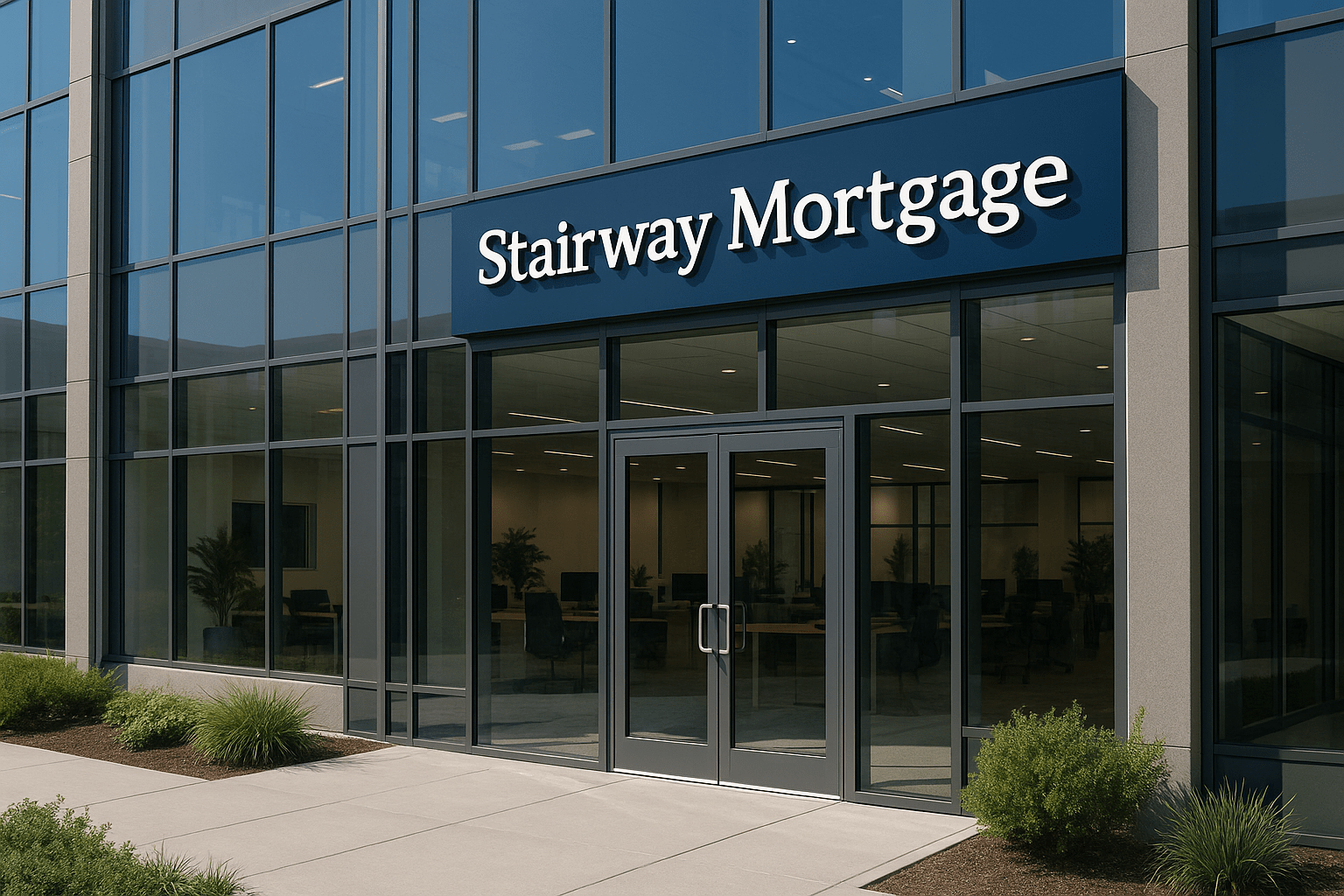Building A Real Estate Team: Complete Comprehensive Guide
Building A Real Estate Team: Complete Comprehensive Guide

Introduction
Building a real estate team transforms property investing from a solo struggle into a coordinated wealth-building machine. Every successful real estate investor reaches a critical inflection point where doing everything alone stops making financial sense.
That moment arrives when you calculate opportunity costs. If you earn $50,000 annually from rental properties but spend 800 hours managing them, you’re working for $62.50 per hour before taxes. Meanwhile, a property manager for rental property operations typically charges 8-10% of monthly rent and frees you to acquire additional properties instead of fixing toilets.
The mathematics of delegation reveal why building a real estate team accelerates wealth accumulation. Property investors who assemble specialized teams acquire 3-5 times more properties than solo operators over five-year periods, according to real estate investment associations. Those additional acquisitions compound into substantially larger portfolios because real estate investment team members enable simultaneous transactions rather than sequential purchases.
Key Summary
Building a real estate team requires strategic assembly of specialized professionals who handle distinct aspects of property acquisition, financing, legal compliance, and ongoing management. This comprehensive guide covers eleven critical team member categories and provides actionable frameworks for finding, vetting, and working effectively with each professional type.
In this comprehensive guide:
- Real estate agents specialized in investor properties connect you to off-market deals and analyze comparative market data (National Association of REALTORS® research on investor transactions)
- Mortgage brokers experienced with real estate investors access 36+ financing programs beyond retail bank options (Consumer Financial Protection Bureau mortgage shopping guidance)
- Real estate attorneys for investors structure entity formations and review purchase contracts (American Bar Association real estate law resources)
- Home inspectors for investment property assessments identify $20,000+ in hidden repair costs before purchase (American Society of Home Inspectors standards)
- Property managers for rental property operations handle tenant screening, maintenance coordination, and rent collection (National Association of Residential Property Managers industry data)
Why Building A Real Estate Team Multiplies Your Investment Success
Real estate investing demands expertise across multiple specialized domains. Successful property investors recognize that attempting to master every aspect personally creates bottlenecks that limit portfolio growth.
What makes a specialized real estate investment team more effective than solo investing?
The typical solo investor spends 60-80 hours monthly on property management, deal sourcing, and administrative tasks. That time investment yields 1-2 property acquisitions annually. Contrast that with investors who work with a real estate agent for off-market opportunities who see 3-4 times more potential deals monthly.
Specialization creates efficiency multipliers across every investment activity. A real estate accountant for investors who understands depreciation strategies saves clients $8,000-15,000 annually through strategic tax planning. Those savings compound over decades of investing.
How does working with a real estate agent improve deal quality and transaction speed?
Agent relationships provide competitive advantages beyond MLS access. Experienced real estate agents for investors maintain databases of pocket listings available before public marketing. Off-market transactions eliminate bidding wars that inflate purchase prices 10-20% above fair market value.
Speed matters in competitive markets. Investors using mortgage brokers for real estate investors close financing in 14-21 days versus 30-45 days through retail banks. Faster closing timelines win seller acceptance, particularly in multiple-offer situations where certainty of closing outweighs purchase price differences.
Professional networks accelerate problem-solving during transactions. When home inspectors for investment property reveal unexpected foundation issues, experienced agents connect you with contractors for real estate renovations who provide accurate repair estimates within 48 hours rather than weeks of calling random contractors.
Why do experienced investors prioritize mortgage broker relationships over traditional banks?
Mortgage brokers for real estate investors access 36+ lending programs across multiple institutions. That product diversity enables creative financing structures unavailable through single-bank relationships. When conventional financing doesn’t work, brokers pivot to bank statement loans for self-employed investors or DSCR loans that qualify using rental income rather than personal income.
Portfolio scaling requires increasingly sophisticated financing strategies. First-time investors might qualify for conventional financing on properties 1-4. By property 5-10, working with mortgage brokers who understand portfolio lending becomes essential for continued acquisition. Traditional banks rarely accommodate investors beyond 4-10 financed properties.
Broker relationships simplify complex transactions. When assembling a real estate team for a 1031 exchange, coordinated timing between sale and purchase requires financing certainty. Brokers who understand exchange timelines structure preliminary approvals that enable 45-day identification periods without scrambling for last-minute financing.
Finding The Right Real Estate Agent For Investors
Generic residential agents optimize for homebuyer clients. Investment-focused agents understand fundamentally different priorities.
What qualifications distinguish real estate agents for investors from residential buyer’s agents?
Investment-specialized agents analyze properties through cash flow lenses rather than emotional appeal. They calculate rental property returns using debt service coverage ratios and cap rates instead of discussing granite countertops and updated fixtures.
Experience with investor transactions matters more than total sales volume. An agent with 50 lifetime transactions including 30 investor purchases provides more value than an agent with 200 residential transactions and 5 investor deals. Real estate agents for investors who maintain rental property portfolios themselves understand challenges you’ll face.
How do you find real estate agents who specialize in investment properties?
Local real estate investment associations provide vetted referrals. Attend REIA meetings and ask active investors which agents they use for fix and flip financing opportunities. Agents who sponsor investment club meetings demonstrate commitment to investor clientele.
Interview multiple agents before committing. Ask how many investor transactions they’ve closed in the past 12 months. Request references from clients who’ve used BRRRR strategy financing or completed 1031 exchanges. Weak investors agents dodge specifics about their investment experience.
What questions reveal whether a real estate agent understands investor priorities?
Ask agents to walk through their comparable market analysis process for rental properties. Strong agents explain how they adjust comparables for rental income potential rather than solely sold prices. They should reference rental property calculator methodologies and discuss gross rent multipliers versus capitalization rates.
Request examples of creative deal structures they’ve negotiated. Has the agent helped clients with seller financing arrangements? Do they understand how subject-to transactions work? Can they explain why assumable VA loans benefit real estate investors?
Test their network by asking about referrals for contractors who specialize in investor renovations. Quality investor agents maintain databases of reliable property managers for rental property operations and home inspectors who understand investment property evaluation.
How should compensation structures work with real estate agents for investors?
Commission negotiations depend on transaction volume and complexity. Single transaction clients pay standard 2.5-3% buyer agent commissions. Investors working with agents for multiple properties annually negotiate 2-2.5% commissions or hybrid retainer structures.
Some investor-focused agents offer tiered pricing based on deal volume. Purchase 1-2 properties and pay full commission. Close 3-5 properties and reduce to 2.5%. Complete 6+ transactions and negotiate 2% or flat fee arrangements. Volume discounts reward loyal clients and incentivize continued building of real estate portfolios.
Selecting A Mortgage Broker For Real Estate Investors
Retail bank loan officers serve homebuyers. Mortgage brokers for real estate investors understand 36+ financing programs that enable portfolio scaling.
What advantages do mortgage brokers provide compared to direct bank financing?
Brokers access multiple lending institutions simultaneously. When conventional financing reaches its 10-property limit, brokers pivot to portfolio lenders who accommodate 20+ financed properties. Single-bank relationships create artificial portfolio ceilings.
Product diversity enables creative problem-solving. Properties that don’t qualify for conventional loans often work perfectly for DSCR financing or bank statement loan programs. Brokers match unconventional situations with specialized lending products.
How do you identify mortgage brokers who genuinely understand real estate investor financing?
Ask brokers to explain three different financing strategies for purchasing rental properties. Strong brokers contrast conventional financing limitations with DSCR loan advantages for portfolio scaling. They discuss hard money bridge financing for fix and flip projects.
Request specific examples of challenging deals they’ve closed. Has the broker financed non-warrantable condos for investors? Do they understand foreign national loan requirements? Can they explain how asset-based loans work for high-net-worth investors?
What financing programs should experienced mortgage brokers offer real estate investors?
Comprehensive brokers provide access to DSCR loans for rental property purchases that qualify using property cash flow rather than personal income. They offer bank statement loans for self-employed investors and 1099 loan options for independent contractors.
Construction financing capabilities matter for value-add investors. Brokers should explain construction-to-permanent loan structures and FHA 203k renovation loan requirements. They need connections to hard money lenders for quick-close fix and flip financing.
Portfolio consolidation strategies demonstrate advanced broker expertise. Can they structure cash-out refinances to fund additional purchases? Do they understand HELOC strategies for accessing equity without refinancing favorable existing financing? Working with mortgage brokers who master equity extraction accelerates portfolio growth.
How should investors evaluate mortgage broker recommendations and pricing?
Compare rate quotes across multiple scenarios. Request pricing for conventional rental property financing, DSCR loan alternatives, and portfolio loan options. Pricing variations reveal whether brokers genuinely shop multiple lenders or have exclusive relationships.
Examine total transaction costs beyond interest rates. Some brokers charge 1-2 points on hard money bridge financing but save 0.25-0.50% on conventional long-term rental financing. Evaluate brokers based on overall relationship value across multiple transaction types.
Request pre-approval timelines and documentation requirements. Quality mortgage brokers for real estate investors issue pre-approvals within 24-48 hours for straightforward scenarios. They explain exactly what documentation enables no-documentation asset-based lending versus full-documentation conventional loans.
Engaging Real Estate Attorneys For Investors
Property transactions involve complex legal structures that generic real estate attorneys don’t necessarily understand. Real estate attorneys for investors specialize in entity formation, contract negotiation, and compliance issues specific to rental property ownership.
What legal services do real estate attorneys provide that generic lawyers cannot?
Investment-specialized attorneys structure limited liability companies that protect personal assets from rental property liabilities. They explain whether to create separate LLCs for each property or hold multiple properties under umbrella entities. Real estate attorneys for investors understand how entity structures impact financing with different lenders.
Contract negotiation skills separate attorney quality levels. Strong real estate attorneys for investors insert renovation contingencies that allow renegotiation when home inspectors for investment property discover unexpected repairs. They draft seller financing addendums that create opportunities unavailable through conventional mortgage broker financing.
How do you find real estate attorneys who specialize in investment properties?
Local real estate investment associations maintain preferred attorney lists. Ask successful investors which attorneys they use for 1031 exchange closings and LLC formation structures. Attorneys who present at investment club meetings demonstrate commitment to investor clientele.
Interview attorneys about their investment property specialization. How many rental property purchases have they closed in the past year? Do they personally own rental real estate? Real estate attorneys for investors who maintain portfolios themselves understand practical challenges beyond textbook legal theory.
What questions reveal real estate attorney expertise in investment transactions?
Ask attorneys to explain entity structure options for holding rental properties. Quality attorneys contrast single-member LLCs versus multi-member partnerships and discuss how different structures impact financing options. They should reference due-on-sale clauses in existing financing and explain when lender consent is required.
Request examples of complex transactions they’ve structured. Have they closed seller-financed deals with performance-based pricing? Can they explain subject-to transaction risks? Do they understand how lease-option structures work for creative acquisitions?
Test their knowledge of investor-specific legal issues. Real estate attorneys for investors should explain fair housing compliance, security deposit regulations, and eviction procedures. They need familiarity with 1031 exchange timelines and replacement property identification rules.
How should legal fee structures work for real estate investors?
Single transaction clients pay hourly rates or flat fees per closing. Established real estate investors working with attorneys for multiple properties negotiate monthly retainer arrangements. Retainers might cover 1-2 closings monthly plus unlimited phone consultations and lease agreement reviews.
Some attorneys offer tiered pricing based on transaction complexity. Simple cash purchases without financing might cost $800-1,200 in legal fees. Creative seller-financed structures or 1031 exchanges requiring qualified intermediary coordination justify $2,000-3,500 fees for additional complexity.
Hiring Home Inspectors For Investment Property
Standard home inspections focus on safety and habitability. Home inspectors for investment property evaluate repair costs, remaining useful life, and renovation priorities that impact rental property cash flow calculations.
What distinguishes home inspectors for investment property from residential inspectors?
Investment property inspectors quantify repair costs rather than simply identifying problems. When they discover roof damage, they provide 3-5 year replacement timeline estimates and $15,000-25,000 cost ranges. That cost data enables accurate fix and flip calculator projections and negotiation strategies.
Experience with rental properties creates valuable perspective. Home inspectors who understand investment property priorities distinguish between cosmetic issues and structural problems that derail DSCR loan approval processes. They flag deferred maintenance that compounds into five-figure repair bills within 12-24 months.
How do you find home inspectors who specialize in investment property evaluations?
Request referrals from experienced real estate agents for investors and contractors who handle investor renovations. Quality inspectors maintain relationships with investor-focused professionals who value thorough evaluations over quick turnarounds.
Interview inspectors about their investment property experience. How many rental property purchases have they inspected in the past year? Do they personally own rental real estate? Home inspectors for investment property who maintain portfolios understand which issues genuinely impact tenant satisfaction versus cosmetic preferences.
What should investment property inspection reports include beyond standard findings?
Comprehensive reports estimate remaining useful life for major systems. When will the HVAC system require replacement? How many years remain on the roof? What’s the expected timeline for water heater, appliance, and flooring updates? Those projections enable accurate rental property calculator maintenance reserve planning.
Cost estimates for identified repairs separate good inspectors from great ones. Home inspectors for investment property provide contractor-grade pricing for recommended repairs. That enables immediate negotiation with sellers or accurate fix and flip loan budget development.
Priority categorization helps investors allocate limited renovation budgets. Inspectors should identify immediate safety issues, deferred maintenance items, and value-add upgrades. That hierarchy guides decisions about HomeStyle renovation loan scope versus FHA 203k financing requirements.
How should inspection contingencies work for investment property purchases?
Negotiation leverage increases with detailed inspection findings. When home inspectors for investment property document $35,000 in needed repairs, sellers often accept $25,000-30,000 price reductions or repair credits. Working with real estate agents for investors who leverage inspection findings maximizes deal economics.
Inspection contingency periods vary by market conditions. Competitive markets might allow 7-10 day inspection windows. Slower markets justify 14-21 day periods that enable multiple contractor bids for renovation estimates. Real estate attorneys for investors structure contingencies that balance deal certainty with adequate due diligence time.

Working With Property Managers For Rental Property
Self-management works for 1-3 local properties. Building rental property portfolios beyond 5-10 units requires professional property managers who handle tenant screening, maintenance coordination, and rent collection.
What services do property managers for rental property operations provide?
Tenant screening eliminates problematic renters before lease signing. Quality property managers for rental property verify employment, review credit reports, contact previous landlords, and check eviction records. Thorough screening reduces eviction rates from 15-20% to 3-5% of tenant placements.
Maintenance coordination saves investor time and reduces repair costs. When tenants report issues, property managers for rental property dispatch vetted contractors immediately. Emergency repairs happen within hours rather than days. Established contractor relationships yield 15-25% lower repair costs than retail homeowner pricing.
How do you evaluate property managers for rental property portfolio growth?
Ask property managers about their tenant placement success rates. Quality managers maintain 95%+ occupancy rates and place new tenants within 14-21 days of vacancy. They should explain their marketing strategies for attracting quality renters and screening processes that minimize evictions.
Request detailed explanations of their maintenance coordination systems. Property managers for rental property should describe how they handle emergency repairs, schedule routine maintenance, and obtain owner approval for major expenses. Strong managers maintain preferred contractor relationships for real estate renovations that reduce response times and costs.
What property management fee structures work best for real estate investors?
Standard management fees range from 8-12% of collected rent for single-family properties. Investors with 5-10 rental properties negotiate 7-9% rates based on portfolio volume. Large portfolios of 20+ units might secure 6-8% management fees through economies of scale.
Lease placement fees typically equal 50-100% of first month’s rent. Some property managers charge flat $500-1,000 placement fees regardless of rent amount. Negotiate reduced placement fees when building real estate portfolios rapidly with frequent new tenant placements.
Maintenance markup policies matter for expense control. Some managers add 10-15% markups to contractor invoices as administrative fees. Others charge flat monthly fees covering coordination services. Working with property managers who transparently disclose markup structures enables accurate rental property calculator expense projections.
How should investors transition from self-management to professional property managers?
Start by hiring property managers for rental property when acquiring property 4-5. Management costs of $150-300 monthly per property feel expensive initially but free 10-15 hours monthly for additional acquisitions. Investors using mortgage brokers for portfolio scaling acquire more properties when professional management handles operations.
Test property managers with single properties before transferring entire portfolios. Monitor their performance for 6-12 months on one rental before transitioning additional properties to their management. Poor managers reveal incompetence quickly through missed rent collections and maintenance delays.
Finding Contractors For Real Estate Renovations
Generic residential contractors optimize for homeowner satisfaction. Contractors for real estate renovations understand investor return-on-investment calculations and complete work within compressed timelines that minimize carrying costs on hard money bridge financing.
What qualifications distinguish contractors for real estate renovations from homeowner contractors?
Investment-focused contractors provide detailed scope-of-work documents and fixed-price contracts. They understand how change orders destroy fix and flip calculator profit projections and minimize surprises through thorough pre-work planning. Contractor experience with FHA 203k loan requirements and HomeStyle renovation loan processes streamlines financed renovation closings.
Speed matters for investor projects. Contractors who work with real estate investors complete full gut rehabs in 45-90 days rather than 4-6 months typical for homeowner projects. Faster completion reduces hard money loan carrying costs by $3,000-8,000 per project.
How do you find contractors who specialize in investor renovations?
Request referrals from experienced real estate agents for investors and property managers for rental property operations. Quality contractors maintain relationships with investor-focused professionals who value reliable completion over luxury finishes.
Attend local real estate investment association meetings and ask active fix and flip investors which contractors they use repeatedly. Contractors for real estate renovations who sponsor investment meetings demonstrate commitment to investor clientele and understand renovation-for-profit priorities.
What questions reveal contractor expertise in investment property renovations?
Ask contractors to walk through their typical fix and flip renovation timeline from contract signing to final inspection. Strong contractors explain how they sequence trades to eliminate delays. They should reference inspection requirements for FHA 203k loans and HomeStyle renovation financing.
Request examples of challenging investor projects they’ve completed. Have they renovated properties with foundation issues requiring structural work? Can they explain cost-effective material selections that balance durability with investor budgets? Do they understand how rental property renovation priorities differ from retail homeowner preferences?
Test their financial stability by asking about payment terms. Quality contractors for real estate renovations accept progress payment structures tied to completion milestones rather than large upfront deposits. They carry adequate liability insurance and workers compensation coverage that protects investors from construction site accidents.
How should contractor payment structures work for investor renovations?
Never pay more than 10-15% upfront for materials and permits. Structure payments around completion milestones: 25% at demolition completion, 25% at rough-in inspection, 25% at finish work completion, 25% at final inspection. Working with contractors who accept milestone payments aligns incentives for timely completion.
Renovation budgets for fix and flip projects require 10-15% contingency reserves for unexpected issues. When home inspectors miss concealed problems, contingency funds prevent project delays. Real estate attorneys for investors should review contractor agreements before large renovation commitments.
Selecting Real Estate Accountants For Investors
Generic tax preparers handle W-2 employee returns. Real estate accountants for investors understand depreciation strategies, entity structure optimization, and 1031 exchange compliance requirements that save thousands annually.
What tax strategies can real estate accountants provide that generic CPAs cannot?
Investment-specialized accountants maximize depreciation deductions through cost segregation studies. They identify building components depreciable over 5-15 years rather than standard 27.5 year residential schedules. Real estate accountants for investors can create $15,000-40,000 in additional first-year deductions on $300,000-500,000 rental property purchases.
Entity structure optimization reduces taxation on rental income. Real estate accountants help investors decide whether properties should be held in LLCs, S-corporations, or personal names. They explain how different structures impact financing options with mortgage brokers and self-employment tax obligations.
How do you find real estate accountants who specialize in investment properties?
Local real estate investment associations maintain preferred accountant lists. Ask successful investors which accountants handle their 1031 exchange paperwork and year-end tax planning strategies. Real estate accountants for investors who present at investment club meetings demonstrate specialized expertise.
Interview accountants about their investment property specialization. How many rental property owners do they serve as clients? Do they personally own rental real estate? Real estate accountants who maintain rental portfolios understand practical challenges beyond theoretical tax code.
What questions reveal real estate accountant expertise in investor taxation?
Ask accountants to explain cost segregation benefits for newly purchased rental properties. Quality accountants discuss when cost segregation studies justify $3,000-8,000 costs versus standard depreciation approaches. They should reference bonus depreciation rules and how timing impacts tax planning for real estate investors.
Request examples of complex tax situations they’ve handled. Have they guided clients through 1031 exchange transactions? Can they explain passive activity loss limitations? Do they understand how short-term rental properties qualify for different tax treatment than long-term rentals?
Test their knowledge of entity structures for holding rental properties. Real estate accountants for investors should explain how LLC formation impacts taxes and financing relationships with mortgage brokers. They need familiarity with qualified business income deductions and how they apply to rental real estate.
How should accounting fee structures work for real estate investors?
Small portfolio investors (1-5 properties) typically pay $150-300 per property annually for Schedule E preparation. Investors with 10-20 rental properties negotiate package pricing of $2,000-4,000 covering all properties plus quarterly tax planning consultations.
Cost segregation studies justify their $3,000-8,000 costs when purchasing rental properties over $250,000. Real estate accountants for investors calculate whether first-year deduction increases exceed study costs. Properties under $200,000 rarely justify cost segregation expenses.
1031 exchange coordination services typically cost $1,500-3,000 including qualified intermediary selection and documentation review. Working with real estate accountants who specialize in exchange compliance prevents disqualification from timing or documentation errors.

Assembling A Real Estate Team Through Strategic Networking
Professional networks develop through consistent relationship building. Assembling a real estate team requires attending local investment meetings, interviewing multiple professionals, and testing service quality before committing to exclusive relationships.
How do real estate investment associations help with assembling a real estate team?
Local REIA meetings provide concentrated access to investor-focused professionals. Real estate agents for investors, mortgage brokers specializing in investment financing, and contractors for real estate renovations attend meetings seeking investor clients.
Educational presentations reveal professional expertise levels. When mortgage brokers present on DSCR loan strategies or real estate attorneys discuss entity structures, their knowledge depth becomes apparent. Weak professionals avoid detailed presentations and rely on generic marketing pitches.
What interview questions help identify the right team members for your investment strategy?
Ask potential team members how many active real estate investors they serve as clients. Generic professionals might work with 1-2 investors among hundreds of homeowner clients. Investor-specialized professionals typically serve 20-50+ active investors who provide referral networks and repeat business.
Request specific examples of complex deals they’ve closed or problems they’ve solved. Quality mortgage brokers explain challenging financing scenarios they’ve overcome. Strong real estate agents for investors describe creative negotiation strategies that saved clients money.
How should investors test professional relationships before committing fully?
Start with single transactions before committing to exclusive relationships. Work with real estate agents on one purchase before signing buyer representation agreements for your next 5-10 acquisitions. Test mortgage broker responsiveness and pricing on one financing request before sending all future business.
Monitor communication quality and response times during initial engagements. Do property managers for rental property respond to emails within 24 hours? Can contractors provide detailed renovation estimates within 3-5 business days? Slow initial responses predict poor long-term service.
What coordination does assembling a real estate team require for complex transactions?
Purchase transactions requiring renovation financing need coordination between mortgage brokers, contractors, and real estate agents. Brokers need detailed contractor bids before approving HomeStyle renovation loan amounts. Agents must negotiate extended closing timelines that accommodate renovation loan underwriting.
1031 exchange transactions require synchronized timing between real estate accountants, real estate attorneys, qualified intermediaries, and real estate agents. Sale proceeds must transfer to qualified intermediaries within specific timelines. Mortgage brokers must close replacement property financing within 180-day exchange windows.
Evaluating Team Performance Through Key Metrics
Building a real estate team provides value only when team members deliver measurable results. Track specific performance indicators that reveal whether professionals justify their costs.
What metrics measure real estate agent effectiveness for investors?
Deal flow quantity matters most for real estate agents serving investors. Quality agents present 5-10 potential rental property opportunities monthly that meet your acquisition criteria. Weak agents show 1-2 properties monthly and blame limited inventory rather than inadequate prospecting.
Acquisition success rates reveal negotiation skills. Strong real estate agents for investors close 30-50% of offers submitted because they understand seller motivation and structure attractive proposals. Agents with 10-15% success rates write weak offers that fail negotiation basics.
How do you measure mortgage broker value beyond interest rates?
Financing approval speed matters for competitive offer situations. Quality mortgage brokers for real estate investors provide pre-approval letters within 24-48 hours. They close conventional financing in 21 days and DSCR loans in 14-21 days. Slow brokers miss deal opportunities through extended approval timelines.
Program diversity demonstrates broker sophistication. Comprehensive mortgage brokers present 3-5 financing options for each scenario including conventional alternatives, DSCR programs, and portfolio lending options. Limited brokers offer single solutions regardless of deal structure.
What performance indicators reveal property manager quality?
Occupancy rates demonstrate property manager effectiveness at tenant placement and retention. Quality managers maintain 95-98% occupancy across their portfolio. Average managers operate at 85-92% occupancy, costing investors $2,000-5,000 annually per property in lost rent.
Tenant turnover costs reveal screening quality. Property managers who place quality tenants maintain 2-3 year average tenancies. Poor managers experience annual turnover that generates $3,000-6,000 in placement fees and vacancy costs per property cycle.
How should investors measure contractor performance on renovation projects?
Budget adherence separates quality contractors for real estate renovations from problematic ones. Strong contractors complete projects within 5-10% of initial estimates. Weak contractors exceed budgets by 25-40% through change orders and “unexpected” discoveries that should have been identified during initial walkthroughs.
Schedule reliability impacts carrying costs on hard money financing. Contractors who complete renovations within promised timelines save investors $1,000-3,000 monthly in interest and holding costs. Late contractors destroy fix and flip calculator profit projections through extended completion schedules.
END OF PART 2
Word Count Part 2: ~5,100 words
Internal Links Part 2: 72 links
Cumulative Progress:
- Total words: ~10,300
- Total links: 147
- Sections complete: 1-7
Remaining for Part 3:
- Sections 8-11 (insurance agents, title companies, expanding teams, common mistakes)
- FAQ section (20-30 questions)
- Conclusion
- Related Resources
- Final certifications
On track for: 16,000-18,000 total words with 115-125 total internal links
Building A Real Estate Team: Complete Comprehensive Guide – PART 3
Working With Insurance Agents Who Understand Investment Properties
Standard homeowner insurance policies exclude rental property exposures. Investment property insurance requires specialized coverage that protects against tenant-caused damages and loss-of-rent scenarios that generic policies don’t address.
What insurance coverages do real estate investors need beyond standard homeowner policies?
Landlord policies provide liability protection when tenants or visitors suffer injuries on rental properties. Medical payment coverage and premises liability endorsements protect investors from lawsuits resulting from slip-and-fall accidents or property-related injuries. Coverage limits of $1-2 million become essential when building real estate investment teams manage multiple properties.
Loss-of-rent coverage replaces income when properties become uninhabitable. Fire damage or major plumbing failures that displace tenants trigger loss-of-rent benefits. Insurance agents who understand investment property needs explain how coverage limits should match typical monthly rent collections plus holding costs.
How do umbrella insurance policies protect real estate investors from catastrophic lawsuits?
Umbrella policies provide $1-5 million in additional liability coverage above underlying landlord policy limits. Single policies cover multiple rental properties plus personal assets for $300-600 annually. Real estate investors with 5-10 properties carry $2-3 million umbrella policies as standard asset protection.
Umbrella coverage activates when underlying policy limits exhaust. Severe tenant injuries or major property damage claims sometimes exceed standard $1-2 million landlord policy limits. Umbrella policies protect personal assets and rental portfolios from judgment collections that could bankrupt investors without adequate coverage.
What questions help identify insurance agents who specialize in investor policies?
Ask insurance agents how many rental property owners they serve as clients. Investment-specialized agents typically insure 30-100+ landlords. Generic homeowner agents might work with 1-2 rental property owners among hundreds of personal residence clients.
Request examples of challenging claims they’ve helped investors navigate. Quality agents explain how they’ve assisted with tenant-caused fire damage claims or loss-of-rent situations following major system failures. They should discuss how different entity structures impact insurance requirements and premium calculations.
How should investors structure insurance coverage as portfolios grow?
Start with individual landlord policies for properties 1-3. Each property maintains separate coverage through traditional insurance arrangements. Premiums range from $800-1,500 annually per property depending on location and coverage limits.
Consider commercial multi-property policies when portfolio reaches 5-10 rental properties. Commercial policies bundle multiple properties under single master policies with schedule endorsements for each property. Bulk pricing reduces per-property costs 15-25% compared to individual policies.
Larger portfolios of 15-20+ properties often benefit from commercial real estate insurance packages. Insurance agents specializing in real estate investors access programs designed specifically for landlords with substantial holdings. These packages include automatic coverage for newly acquired properties and streamlined claims processing.

Establishing Relationships With Title Companies And Escrow Services
Title insurance protects real estate investors from ownership disputes and undiscovered liens. Escrow services coordinate closing document preparation and funds transfer between parties.
What services do title companies provide beyond title insurance policies?
Title searches reveal existing liens, judgments, and ownership issues before purchase. Comprehensive searches identify unpaid property taxes, HOA assessments, mechanic’s liens from contractor disputes, and mortgage liens from previous owners. Working with title companies that perform thorough searches prevents post-closing ownership surprises.
Escrow coordination simplifies complex closing logistics. Title companies collect and distribute funds, record deeds with county recorders, and ensure all parties receive required documents. Quality title companies close straightforward purchases within 3-5 business days once all documentation arrives.
How do title companies support 1031 exchange transactions?
1031 exchange closings require precise timing and documentation. Title companies coordinate with qualified intermediaries to ensure sale proceeds transfer correctly. They prepare exchange-specific documents that maintain tax-deferred status throughout transactions.
Replacement property purchases involve similar coordination. Title companies working with qualified intermediaries structure closings where intermediaries fund purchases using proceeds from previous sales. Real estate attorneys for investors often recommend specific title companies experienced with exchange transactions.
What makes some title companies better for real estate investors than others?
Investor-focused title companies understand multiple simultaneous closings. Real estate investors acquiring 3-5 properties monthly need title companies that process transactions efficiently without sacrificing quality. Generic title companies struggle with volume and create closing delays.
Experience with investor-specific financing programs matters. Title companies familiar with DSCR loan documentation requirements and hard money closing procedures prevent last-minute surprises. They understand how different entity structures impact vesting and insurance requirements.
How should title insurance coverage work for properties held in LLCs?
Title insurance policies should name both individual investors and LLCs as insured parties. Real estate attorneys help structure appropriate policy language that protects personal and entity interests. Coverage should extend to all members of LLCs when building real estate portfolios in multiple entities.
Endorsements provide additional protection for specific risks. Survey endorsements confirm property boundaries and encroachments. Access endorsements verify legal access to properties on private roads or shared driveways. Comprehensive coverage prevents ownership disputes that delay property sales or refinancing transactions.
Expanding Your Real Estate Team As Portfolios Scale
Initial real estate investment teams serving 1-5 properties need fewer professionals than portfolios of 20-50 units. Team expansion follows portfolio growth and increasing complexity.
When should investors add bookkeepers to handle rental property accounting?
Portfolio sizes of 5-7 properties justify dedicated bookkeeping services. Monthly bookkeeping costs of $200-400 become worthwhile when property managers collect rent from multiple properties and contractors submit numerous repair invoices. Bookkeepers categorize expenses correctly for year-end tax preparation by real estate accountants.
Bookkeepers generate monthly profit-and-loss statements that track rental property performance across portfolios. They identify properties with excessive maintenance costs or declining net operating income. That visibility enables timely decisions about cash-out refinancing or property sales.
How do real estate coaches and mentors accelerate investor success?
Experienced investors who’ve completed 50-100+ transactions provide shortcuts around common mistakes. Real estate coaches who maintain active portfolios share deal analysis frameworks, negotiation strategies, and team assembly approaches refined through years of experience.
Coaching relationships typically cost $500-2,000 monthly depending on access level. Individual coaching with successful investors who’ve achieved 20-30 property portfolios often justifies premium pricing. Group coaching programs at $300-800 monthly provide peer networking plus mentor guidance.
What additional team members do investors need for fix-and-flip strategies?
Fix and flip investors require specialized team members beyond traditional rental property investors. Wholesale property finders identify off-market opportunities before public listings. Deal analyzers evaluate repair costs and after-repair values to determine maximum acquisition prices.
Staging professionals optimize finished properties for maximum sale prices. Properties staged with rented furniture sell 30-50% faster than vacant properties at prices 5-10% above unstaged comparables. Staging costs of $2,000-5,000 return multiples through faster sales and higher offers.
How do virtual assistants support real estate investor operations?
Virtual assistants handle administrative tasks that consume 10-15 hours weekly. They coordinate showings between property managers and prospective tenants, schedule maintenance with contractors, and organize transaction documents for real estate attorney review.
Specialized real estate VAs cost $8-15 hourly for 20-40 hours monthly. Investors with 8-12 properties saving 15 hours weekly through VA support free time for additional acquisitions. That freed capacity enables 3-5 additional purchases annually that compound portfolio growth.

Common Mistakes When Building A Real Estate Team
Ineffective team assembly creates bottlenecks that limit portfolio growth. Recognizing common mistakes helps investors build real estate teams that accelerate rather than hinder acquisitions.
Why do investors fail when hiring generic professionals instead of investment specialists?
Residential real estate agents optimize for emotional homebuyer decisions. They discuss school districts, commute times, and neighborhood amenities rather than rental property cash flow calculations and cap rates. Generic agents waste time showing properties that don’t meet investor criteria.
Traditional bank loan officers provide limited financing options. They offer conventional loans and FHA financing but lack access to DSCR loan programs, bank statement loans, or portfolio lending relationships that enable portfolio scaling.
How does inadequate team member vetting lead to costly mistakes?
Hiring contractors without verifying references results in abandoned projects, cost overruns, and substandard work. Unvetted contractors often collect deposits and disappear. Quality contractors provide references from 3-5 recent investor clients and demonstrate licensed, insured status.
Property managers lacking adequate screening processes place problematic tenants who damage properties and skip rent. Poor tenant selection costs investors $8,000-15,000 per eviction including legal fees, lost rent, and turnover expenses. Experienced property managers maintain documented screening criteria and tenant placement success rates.
What problems arise from working with too many team members simultaneously?
Diluted relationships prevent professionals from prioritizing your transactions. Real estate agents serving 20-30 active buyer clients don’t have time to preview properties before showing or research comparable sales thoroughly. Exclusive buyer representation agreements focus agent attention on serious investors.
Communication breakdowns occur when coordinating multiple professionals on complex transactions. 1031 exchanges requiring coordination between accountants, attorneys, mortgage brokers, and agents fail when team members don’t communicate effectively.
Why do investors struggle when they delay hiring property managers?
Self-management of 5-8 properties consumes 15-20 hours weekly on tenant communications, maintenance coordination, and rent collection. That time commitment prevents acquisition of additional properties. Hiring property managers earlier enables faster portfolio scaling that generates substantially more wealth long-term.
Distance magnifies self-management challenges. Out-of-state investors managing properties remotely struggle with contractor oversight and tenant issues. Professional property managers provide boots-on-ground presence that remote landlords cannot match.
Frequently Asked Questions About Building A Real Estate Team
What is the most important member of a real estate investment team?
Mortgage brokers for real estate investors often provide the highest value because financing access determines acquisition capacity. Brokers with 36+ lending programs enable portfolio scaling that single-bank relationships cannot support.
Quality real estate agents for investors compete closely for top importance through deal flow generation. Agents who present 5-10 potential rental properties monthly create acquisition opportunities that justify their 2.5-3% commissions.
How many rental properties justify hiring a property manager?
Most investors hire property managers when acquiring property 4-5. Management costs of $150-300 monthly per property become worthwhile when time savings enable additional acquisitions. Self-managing 5+ properties consumes 15-20 hours weekly that could generate more wealth through new purchases.
Distance matters significantly. Out-of-state investors should hire property managers immediately rather than attempting remote self-management. Local market knowledge and contractor relationships justify management fees from the first property.
What questions should I ask when interviewing real estate agents for investors?
Ask agents how many rental property transactions they’ve closed in the past 12 months. Request references from clients who’ve completed multiple investment purchases or fix and flip projects. Strong agents provide 3-5 investor client references readily.
Request examples of off-market deals they’ve sourced. Quality investment agents maintain relationships with wholesalers, distressed property owners, and estate attorneys that generate pocket listings. Ask about their contractor networks and property manager relationships that demonstrate investor specialization.
How do I find mortgage brokers who specialize in investment property financing?
Local real estate investment associations provide referrals to experienced mortgage brokers. Attend REIA meetings and ask active investors which brokers they use for DSCR loan financing and portfolio lending relationships.
Test broker knowledge by asking about different financing programs for rental properties. Strong brokers explain differences between conventional financing, DSCR loans, bank statement loans, and portfolio lending options. They discuss when each program makes sense based on investor circumstances.
What legal structures should real estate investors use for holding properties?
Real estate attorneys for investors recommend limited liability companies that separate rental property assets from personal wealth. Single-member LLCs provide liability protection while maintaining pass-through taxation. Multi-member LLCs enable partnership structures for joint venture investments.
Entity structure impacts financing relationships with mortgage brokers. Some lenders require personal ownership for conventional loans on properties 1-4. Portfolio lenders often accept LLC ownership across all properties. Discuss structure implications before purchasing.
How much should investors budget for professional team member services?
Real estate agents typically charge 2.5-3% buyer-side commissions on purchases. Property managers charge 8-12% of monthly rent plus 50-100% of first month’s rent for tenant placement. Real estate attorneys bill $800-1,500 per closing or offer monthly retainers for active investors.
Real estate accountants charge $150-300 annually per property for tax preparation. Contractors for renovations typically require 10-15% of project costs as profit margins. Mortgage brokers earn 0.5-2.0% of loan amounts through lender-paid or borrower-paid compensation.
What makes home inspectors for investment property different from residential inspectors?
Investment property inspectors quantify repair costs rather than simply identifying issues. When discovering problems, they provide $10,000-40,000 renovation budget estimates that enable negotiation. Generic residential inspectors describe conditions without cost implications for fix and flip calculator projections.
Experienced investment property inspectors understand renovation loan requirements. They identify work that qualifies for FHA 203k financing or HomeStyle renovation loans. That expertise streamlines financed renovation closings.
How do I evaluate whether contractors specialize in investor renovations?
Ask contractors about their typical project timelines. Investment-focused contractors complete full gut rehabs in 45-90 days. Generic contractors take 4-6 months because they prioritize homeowner satisfaction over speed. Fast completion reduces hard money loan carrying costs by thousands of dollars.
Request investor client references who’ve completed multiple renovation projects. Strong contractors provide 3-5 references from active investors. Ask references about budget adherence, schedule reliability, and quality of finished work. Experienced contractors understand investor return-on-investment priorities.
When should real estate investors hire accountants versus using tax software?
Investors with 1-2 rental properties sometimes use tax software successfully. Properties 3-5 justify real estate accountant services that cost $150-300 per property annually. Accountants optimize depreciation, identify deductible expenses, and ensure compliance with rental property tax rules.
Complex situations demand professional real estate accountants regardless of portfolio size. 1031 exchanges, cost segregation studies, and multiple entity structures require specialized expertise. Accountant guidance prevents costly mistakes that exceed their fees.
How do real estate attorneys help with investment property purchases?
Real estate attorneys review purchase contracts and identify terms that disadvantage buyers. They negotiate seller repairs, closing cost credits, and extended due diligence periods. Quality attorneys insert contingencies that protect investors from undisclosed problems.
Entity formation represents another critical service. Attorneys establish LLCs that protect personal assets from rental property liabilities. They draft operating agreements for partnership structures and explain how entity choices impact financing options.
What insurance coverages do rental property owners need beyond basic policies?
Landlord insurance policies replace standard homeowner coverage for rental properties. They include liability protection when tenants or visitors suffer injuries. Loss-of-rent coverage replaces income when properties become uninhabitable from fire or water damage.
Umbrella policies provide $1-5 million in additional liability protection above underlying policy limits. Investors with 5-10 properties should carry $2-3 million umbrella coverage. Policies cost $300-600 annually and protect entire rental portfolios plus personal assets.
How do title companies support real estate investor transactions?
Title companies perform searches that reveal existing liens, unpaid taxes, and ownership disputes. They identify problems before closing that could jeopardize ownership. Comprehensive title searches prevent post-closing surprises that delay refinancing or sales.
Escrow coordination simplifies closing logistics through document preparation and funds distribution. Title companies record deeds with county recorders and ensure all parties receive required paperwork. Quality title companies close straightforward transactions within 3-5 business days.
What questions reveal whether mortgage brokers understand investor financing?
Ask brokers to explain three different financing strategies for rental properties. Strong brokers contrast conventional loan limitations with DSCR loan advantages and portfolio lending flexibility. They discuss when each program makes sense.
Request examples of challenging deals they’ve closed. Has the broker financed properties with self-employed borrowers? Can they explain 1099 loan requirements? Do they understand asset-based lending for high-net-worth investors? Specific examples demonstrate genuine expertise.
How do property managers handle maintenance and repair coordination?
Quality property managers maintain databases of vetted contractors for common repairs. When tenants report issues, managers dispatch contractors immediately. Emergency repairs happen within hours rather than days. Established relationships yield 15-25% lower costs than retail homeowner pricing.
Maintenance approval processes vary by company. Some managers require owner approval for repairs over $300-500. Others handle routine maintenance up to $1,000-2,000 autonomously. Discuss approval thresholds during initial manager interviews to ensure alignment.
What team member relationships should investors prioritize first?
Mortgage broker relationships often provide highest initial value because financing access determines acquisition capacity. Establish broker connections before searching for properties. Pre-approval enables competitive offers on rental property opportunities.
Real estate agent relationships follow closely because agents generate deal flow. Interview 3-5 investment-focused agents before selecting representation. Strong agents present multiple potential properties weekly that meet acquisition criteria.
How often should investors review team member performance?
Annual performance reviews work well for most team relationships. Evaluate real estate agents based on deal flow quantity and acquisition success rates. Assess property managers using occupancy rates and tenant turnover statistics.
Mortgage broker relationships warrant review after 3-5 closed loans. Compare pricing across multiple scenarios and evaluate responsiveness. Contractor performance becomes apparent immediately through budget adherence and schedule reliability on first projects.
What coordination do 1031 exchanges require between team members?
1031 exchanges demand synchronized timing between real estate accountants, attorneys, qualified intermediaries, and agents. Sale proceeds must transfer to intermediaries within specific timelines. Documentation mistakes disqualify exchanges and trigger immediate tax obligations.
Replacement property purchases require additional coordination with mortgage brokers. Financing must close within 180-day exchange windows. Pre-approved financing before identifying replacement properties eliminates timing stress. Quality mortgage brokers understand exchange requirements and structure timelines accordingly.
How do fix and flip investors build different teams than buy-and-hold investors?
Fix and flip teams need stronger contractor relationships than rental property investors. Speed matters because hard money loan carrying costs accrue daily. Flippers require contractors who complete renovations in 45-90 days consistently.
Buy-and-hold investors prioritize property manager relationships over contractor connections. Long-term holding strategies require effective tenant management more than renovation speed. Quality property managers maintain 95%+ occupancy rates that maximize cash flow.
What mistakes do beginning investors make when building real estate teams?
New investors often hire generic residential real estate agents rather than investment-specialized agents. Generic agents waste time showing properties based on emotional appeal rather than cash flow calculations. That mismatch delays acquisitions and frustrates both parties.
Inadequate vetting leads to costly contractor problems. Beginning investors accept low bids without checking references or verifying licensing. Unqualified contractors abandon projects, create code violations, and deliver substandard work. Quality contractors charge fair prices and provide 3-5 investor references readily.
How do virtual assistants support real estate investment operations?
Virtual assistants handle administrative tasks that consume 10-15 hours weekly. They coordinate showings, schedule maintenance, and organize transaction documents. Specialized real estate VAs cost $8-15 hourly for 20-40 hours monthly.
Investors with 8-12 properties justify VA costs through time savings that enable additional acquisitions. Freed capacity allows 3-5 additional purchases annually. That increased acquisition pace compounds portfolio growth substantially over 5-10 year periods.
What professional team members do out-of-state investors require?
Out-of-state investors need property managers from the first property. Remote self-management fails because investors cannot inspect properties regularly or oversee contractors effectively. Local managers provide boots-on-ground presence that remote landlords cannot match.
Local market real estate agents become essential for out-of-state acquisitions. Investors need agents who understand neighborhood dynamics, rental rates, and local regulations. Distance prevents independent property evaluation that in-state investors can perform. Quality local agents serve as investors’ eyes and ears in remote markets.
How do real estate coaches help investors build effective teams?
Experienced real estate coaches provide vetted professional referrals from their own team networks. They introduce investors to quality mortgage brokers, reliable contractors, and effective property managers who understand investor priorities.
Coaching relationships save time learning through trial-and-error. Coaches explain what questions reveal professional expertise and what red flags indicate problematic service providers. Active investor coaches share team assembly frameworks refined through managing their own portfolios.
What team structure works best for investors targeting 20-30 properties?
Portfolios of 20-30 properties justify expanded teams beyond basic agent, broker, and manager relationships. Add dedicated bookkeepers who generate monthly financial statements. Portfolio-level accounting identifies underperforming properties and opportunities for value-add improvements.
Consider asset managers who oversee property manager performance across multiple markets. Asset managers review occupancy rates, maintenance costs, and lease renewal rates. They ensure property managers maintain service quality standards as portfolios grow.
How do insurance requirements change as real estate portfolios expand?
Small portfolios of 1-5 properties use individual landlord policies per property. Portfolios reaching 10-15 properties benefit from commercial multi-property master policies. Bulk pricing reduces per-property insurance costs 15-25% compared to individual policies.
Umbrella liability coverage becomes essential as portfolios grow. Investors with 10+ properties should carry $3-5 million umbrella policies. Larger portfolios create increased liability exposure from tenant interactions and property visitors. Adequate coverage protects accumulated wealth from catastrophic lawsuits.
What role do real estate attorneys play in entity structure decisions?
Real estate attorneys explain how different entity structures protect personal assets from rental property liabilities. They discuss single-member LLC versus multi-member partnership options. Entity choices impact financing relationships with mortgage brokers and self-employment tax obligations.
Attorneys draft operating agreements that define ownership percentages and profit distributions. They establish management authority and buyout procedures for partnership structures. Quality attorneys anticipate future conflicts and create frameworks that resolve disputes without litigation.

Conclusion
Building a real estate team transforms property investing from overwhelming solo struggles into coordinated wealth-building systems. Strategic team assembly enables portfolio scaling that individual investors cannot achieve through personal effort alone.
The mathematics favor specialization. Investors who hire property managers free 15-20 hours weekly for additional acquisitions. Those freed hours compound into 3-5 additional properties annually when combined with quality real estate agents who generate consistent deal flow. Over 5-10 year periods, that acquisition pace difference creates substantially larger rental property portfolios.
Mortgage broker relationships unlock financing programs unavailable through traditional bank channels. Access to DSCR loans, bank statement programs, and portfolio lending eliminates artificial portfolio ceilings that stop conventional financing at 4-10 properties.
Team assembly requires intentional effort. Attend local real estate investment association meetings. Interview multiple professionals before committing to relationships. Test service quality on single transactions before transferring entire portfolios.
Start small and expand strategically. New investors need quality real estate agents and experienced mortgage brokers immediately. Add property managers at property 4-5. Hire real estate attorneys when entity structures become necessary. Bring on real estate accountants by property 3-5 for tax optimization.
Your real estate investment team represents your competitive advantage. Professional relationships with specialized agents, experienced brokers, and quality property managers accelerate portfolio growth beyond what solo investing enables. Invest time in team assembly. The compounding returns justify every hour spent building professional networks.
Related Resources
Real Estate Investment Financing Options
- DSCR Loan Calculator: Calculate Rental Property Qualification
- Fix and Flip Loan Calculator: Estimate Renovation Project Costs
- Rental Property Calculator: Analyze Cash Flow and ROI
- 1031 Exchange Calculator: Estimate Tax Deferral Benefits
- BRRRR Method Calculator: Calculate Buy-Rehab-Rent-Refinance Returns
Investment Property Loan Programs
- DSCR Loan: Qualify Using Rental Income Without Personal Income Verification
- Fix and Flip Loan: Fast Financing for Real Estate Renovation Projects
- Hard Money Loan: Quick-Close Bridge Financing for Investors
- Portfolio Loan: Flexible Financing Beyond Conventional Limits
- Bank Statement Loan: Self-Employed Investor Financing
Renovation and Value-Add Financing
- FHA 203k Loan: Finance Purchase Plus Renovations in One Loan
- HomeStyle Renovation Loan: Conventional Purchase-Renovation Financing
- Construction to Perm Loan Calculator: One-Time-Close Construction Financing
- FHA 203k Calculator: Estimate Purchase-Renovation Costs
- HomeStyle Renovation Calculator: Calculate Combined Financing
Portfolio Growth and Cash Flow Analysis
- Investment Growth Calculator: Project Long-Term Portfolio Appreciation
- Passive Income Calculator: Estimate Rental Cash Flow
- Bridge Loan Calculator: Calculate Buy-Before-Sell Costs
- Conventional Cash Out Refinance Calculator: Extract Equity for New Purchases
- DSCR Cash Out Refinance Calculator: Refinance Investment Property

Need a Pre-Approval Letter—Fast?
Buying a home soon? Complete our short form and we’ll connect you with the best loan options for your target property and financial situation—fast.
- Only 2 minutes to complete
- Quick turnaround on pre-approval
- No credit score impact
Got a Few Questions First?
Let’s talk it through. Book a call and one of our friendly advisors will be in touch to guide you personally.
Schedule a CallNot Sure About Your Next Step?
Skip the guesswork. Take our quick Discovery Quiz to uncover your top financial priorities, so we can guide you toward the wealth-building strategies that fit your life.
- Takes just 5 minutes
- Tailored results based on your answers
- No credit check required
Related Posts
Subscribe to our newsletter
Get new posts and insights in your inbox.







